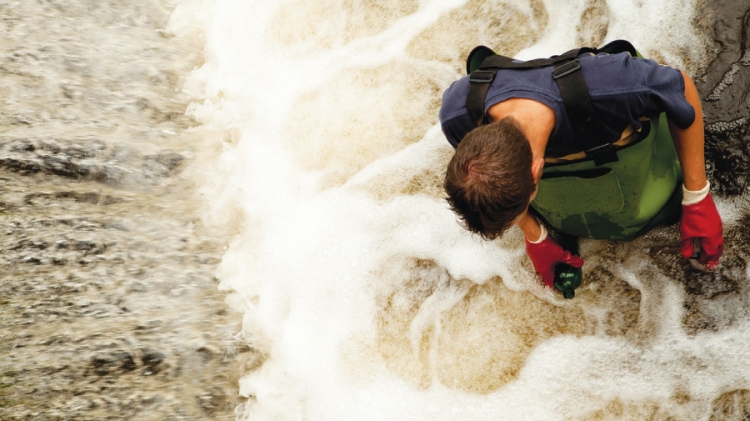
Meeting developed-world expectations of lifestyle and green landscaped beauty in desert cities poses a particular challenge in places like Abu Dhabi.
Water is scarce, so we need innovative, practical, and efficient systems and practices. We can borrow from advanced horticulture – using salt-tolerant plants, for example – to reduce demand. Even then, we still need a reliable, healthy and sustainable stream of water.
Abu Dhabi has managed to provide that through innovative water-treatment systems like high-capacity desalination. That, though, uses a lot of energy.
In a more limited manner, Abu Dhabi has used less energy-intensive processes to change waterborne waste from domestic, commercial and industrial activity into non-potable water. The UAE ranks as one of the leading nations in the world in treated waste-water reuse.
Abu Dhabi recently introduced its first indigenous regulations for treated waste water. The rules, based on World Health Organisation best practices and other precedents in local and international law, define the amount of microbes, chemicals and other parameters allowed in recycled water and biosolids.
Implementing these new regulations requires a deeper understanding of the risks of residual contaminants in treated water, which is commonly used in cooling towers, municipal irrigation and firefighting.
A quantitative assessment of the risk of long-term exposure to contaminants present in the environment determines environmental standards in much of the developed world. Without this assessment exercise, the link between public health and environment quality remains uncertain.
The new regulations require the treated waste-water provider or disposal licensee – the company that turns waste water into recycled water – to develop a safety plan for various end users that includes an environmental risk assessment.
While the general guidelines are based on those used elsewhere, when it comes to the actual potential impacts of the UAE’s treated waste water on a given population or profession, we need precise information specific to local-usage patterns, climate, lifestyle and work patterns.
By studying the potential impact of treated waste water, and drawing up guidelines for its use, the Masdar Institute of Science and Technology’s water and environmental engineering programme is hoping to answer questions such as: How can a work lifetime of exposure to treated water potentially affect a fireman’s health? What could playing in a lawn sprinkler mean for a child with compromised immunity?
Do common painkillers and antibiotics remain in treated water, and could they affect the environment or people’s health?
Can treated waste water be used in more ways to save on energy? Can the byproducts of disinfection practices, many of which are suspected carcinogens, cause significant harm over prolonged exposure?
Our project aims to articulate a plan to characterise regional recycled water, evaluate toxicity, develop a framework for determining end-use based on potential for human exposure and develop recommendations for recycled water evaluation based on human health risk.
Having a detailed methodology for assessing the potential risks will give the government the information it needs to draw up guidelines that allow the emirate to make the best use of its wastewater while limiting its potential harm.
The benefits are huge. Water consumption, and particularly desalination, forms a large part of the UAE’s overall ecological footprint.
By reusing waste water, Abu Dhabi’s need to desalinate is reduced. Not only that, the research could potentially unlock further uses for treated waste water.
It could also help other sustainable cities of the future. Water reuse standards vary according to what the water will be used for. By looking at the whole water cycle it is likely that future sustainable cities like Masdar could use treated waste water as normal municipal water after additional treatment, as Singapore already does to a degree.
Unfortunately, water reuse standards are based primarily on the likelihood of it carrying disease, rather than containing residual chemicals.
As the concept of eco-friendliness becomes more defined and enforced, governments and regulators everywhere will be looking for new rules based on latest data and research.
And it is only fitting that as an emirate that leads in waste-water reuse, Abu Dhabi should contribute to the scientific understanding and regulation of that necessary resource.
Dr. Farrukh Ahmad is an assistant professor in water and environmental engineering at the Masdar Institute of Science and Technology
http://www.thenational.ae/news/uae-news/technology/masdar-institute-project-to-refine-uses-of-waste-water